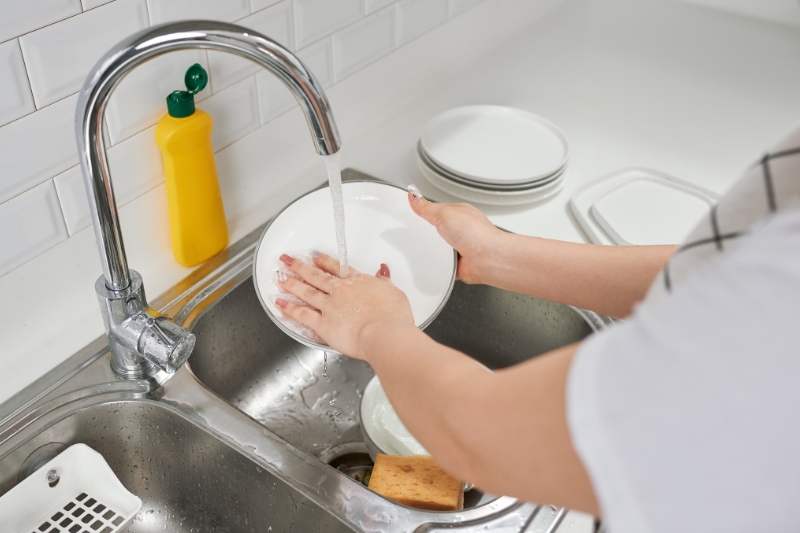People who grew up with a dishwasher in the house probably remember their parents telling them to rinse their dishes before putting them into the dishwasher.
Some of us questioned why this was necessary when the dishwasher’s job was to wash the dishes.
We investigated whether you do need to rinse your dishes before putting them in the dishwasher and what to do if they come out with food still on them.
Do You Need to Rinse Dishes Before Putting Them in the Dishwasher?
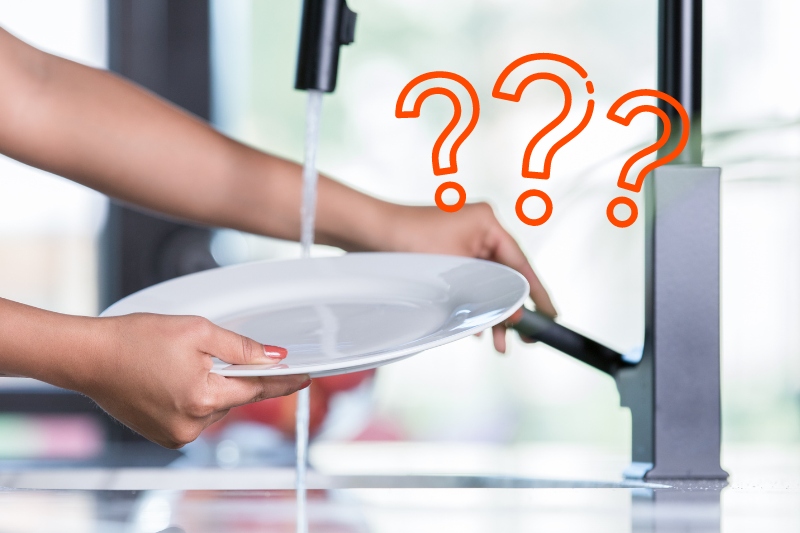
No, you don’t need to pre-rinse your dishes before putting them into the dishwasher.
However, you should always scrape any leftover food into the bin before putting dishes in the dishwasher, otherwise the filter will get blocked.
How can you tell the difference between what to scrape off and what to leave? Leftover pasta, cake or vegetables should be scraped off. Sauce, for example, doesn’t need to be rinsed before loading.
If you do rinse your dishes first, they could end up not getting properly cleaned.
Some modern dishwashers contain sensors to detect how dirty dishes are. If you rinse all the residue off, they may appear cleaner than they are and may not get a thorough wash.
Rinsing also uses water unnecessarily. Since the dishwasher cleans dishes, there’s no need to use extra water rinsing them.
In fact, According to Which?, even the least efficient dishwashers use less water than washing by hand, while the most efficient use 10 times less water.
A good dishwasher detergent should be all you need to clean your dishes. Many dishwasher tablets contain enzymes that break down food particles, so that leftover waste will be removed with ease.
However, if you do rinse your dishes before putting them in the dishwasher, the detergent has nothing to break down and may wash away before it cleans anything.
However, there are exceptions.
Is It Ok to Leave Dirty Dishes in the Dishwasher?
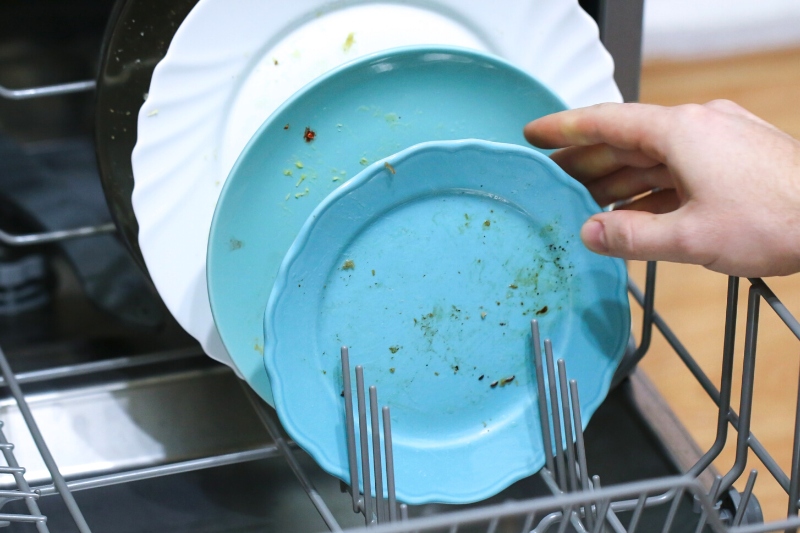
Sometimes, we fill our dishwashers up over a few days and in this case, it can be useful to pre-rinse. Especially foods that are likely to stick such as carbs, egg, oats, milk and cereal.
If you’ve had any of these foods, and don’t plan to run the dishwasher straight away, you may want to rinse your dishware.
If you’re planning to run the dishwasher just after eating these types of foods, you don’t need to pre-rinse.
What to Do When the Dishwasher Doesn’t Fully Clean Dishes
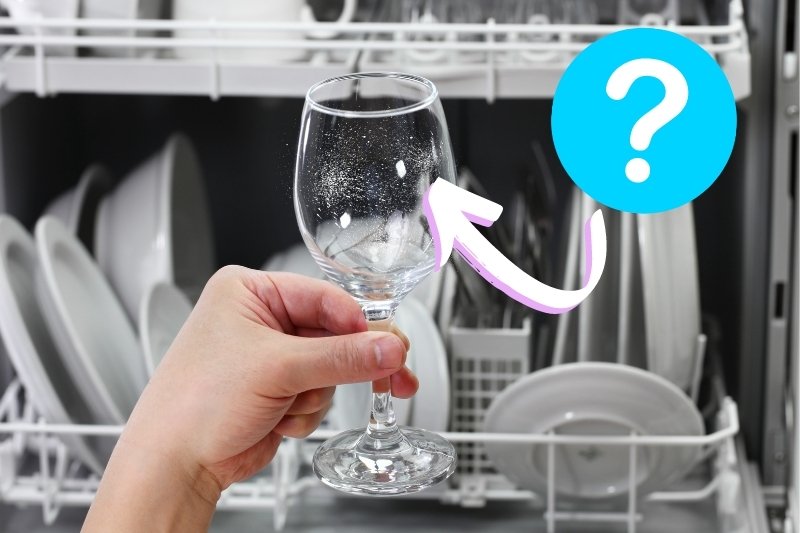
If your dishwasher doesn’t fully clean your dishes, there may be an issue with it or the way you’re using it.
Try these tips to see if they make a difference:
- Clean out the food filters: Not rinsing dishes beforehand does mean that food can build up in the machine.
- Try a new detergent: Go for a brand that’s enzyme-based for the most effective wash.
- Try a different cycle: It may be that your dishes were dirtier than you realised and the chosen program wasn’t strong enough.
- Try a pre-wash: If your dishes are particularly dirty or have been sitting around all night, add a pre-wash to your cycle.
- Run an empty cycle using a dishwasher cleaner to remove any build-up in the machine.
If this doesn’t work for you, and you find that pre-rinsing does, you should go ahead and pre-rinse your dishes!
While you generally shouldn’t need to, every dishwasher is different and some may need a little extra help.
How to Load a Dishwasher Correctly
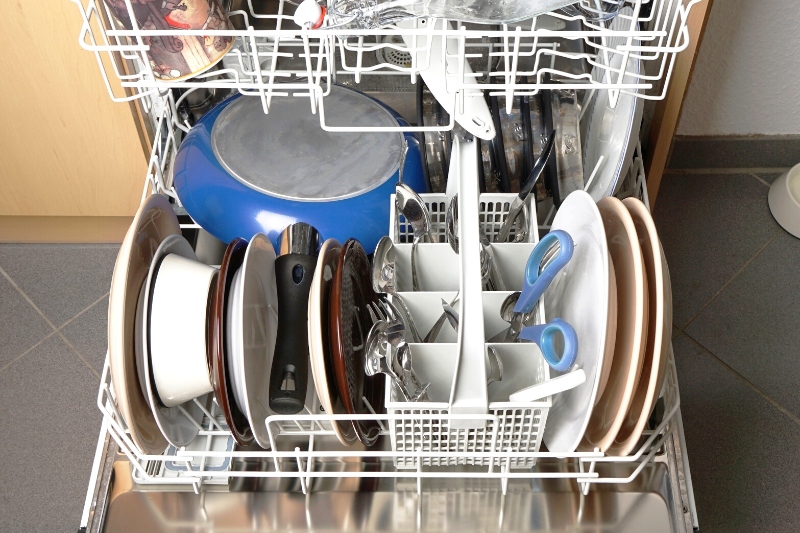
There is an optimal way to load the dishwasher so that dishes get the best wash.
- Always place your dishes face down so that the water sprays the dirtiest part.
- Load the dirtiest items onto the bottom rack as they’re closest to the water jets.
- Be sure that any larger items on the bottom rack aren’t obstructing the water getting to the items at the top.
- Place delicate items on the top rack for a gentler wash. That said, don’t put anything that’s fragile or precious to you in the dishwasher.
- Avoid putting wood, copper, aluminium and cast-iron items in the dishwasher.
- Place plastic items on the top rack to stop them from overheating in the hot water.
- Place utensils in the utensils basket with the handles down. Place knives with the handles up so you don’t injure yourself.
- Lay larger utensils, such as spatulas, flat on the top rack.

In The Wash is your guide to the best laundry and cleaning products, tips and tricks. Our mission is to solve the UK’s cleaning and laundry dilemmas!
